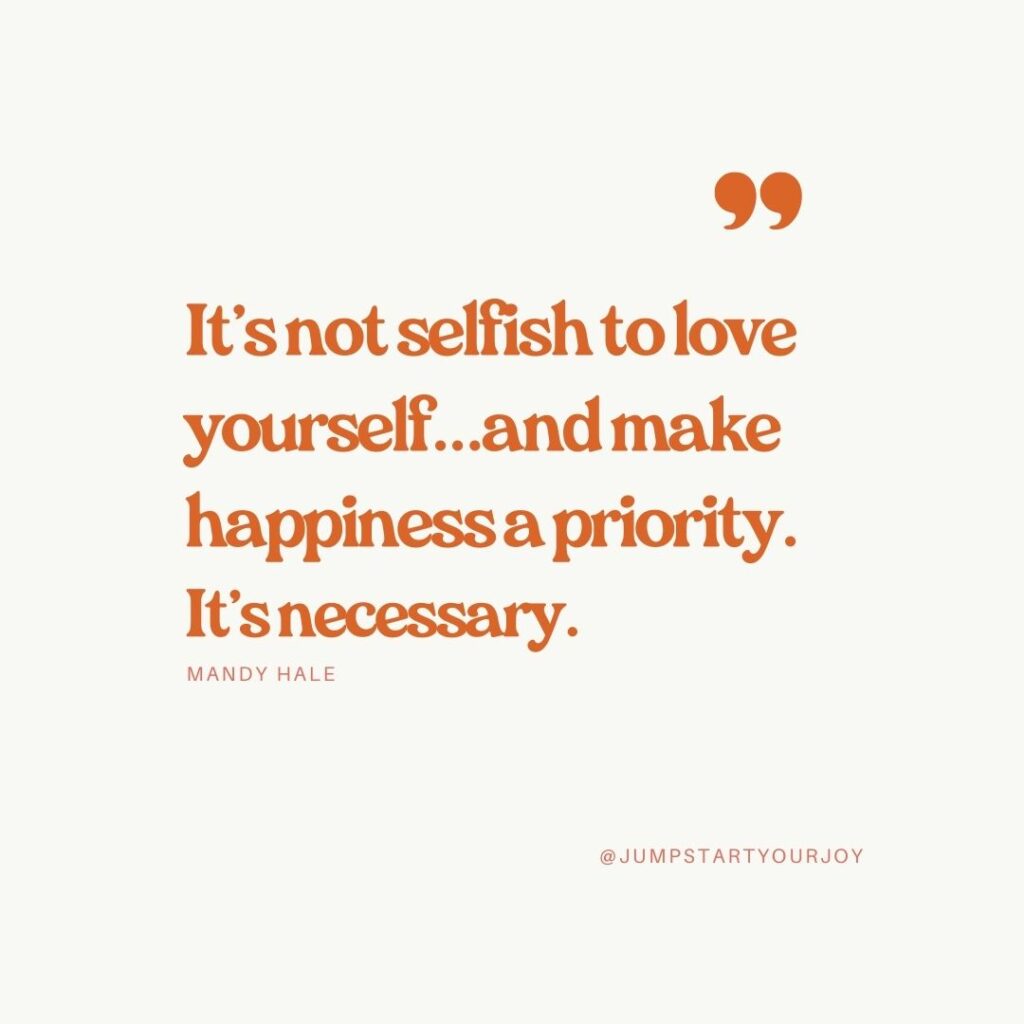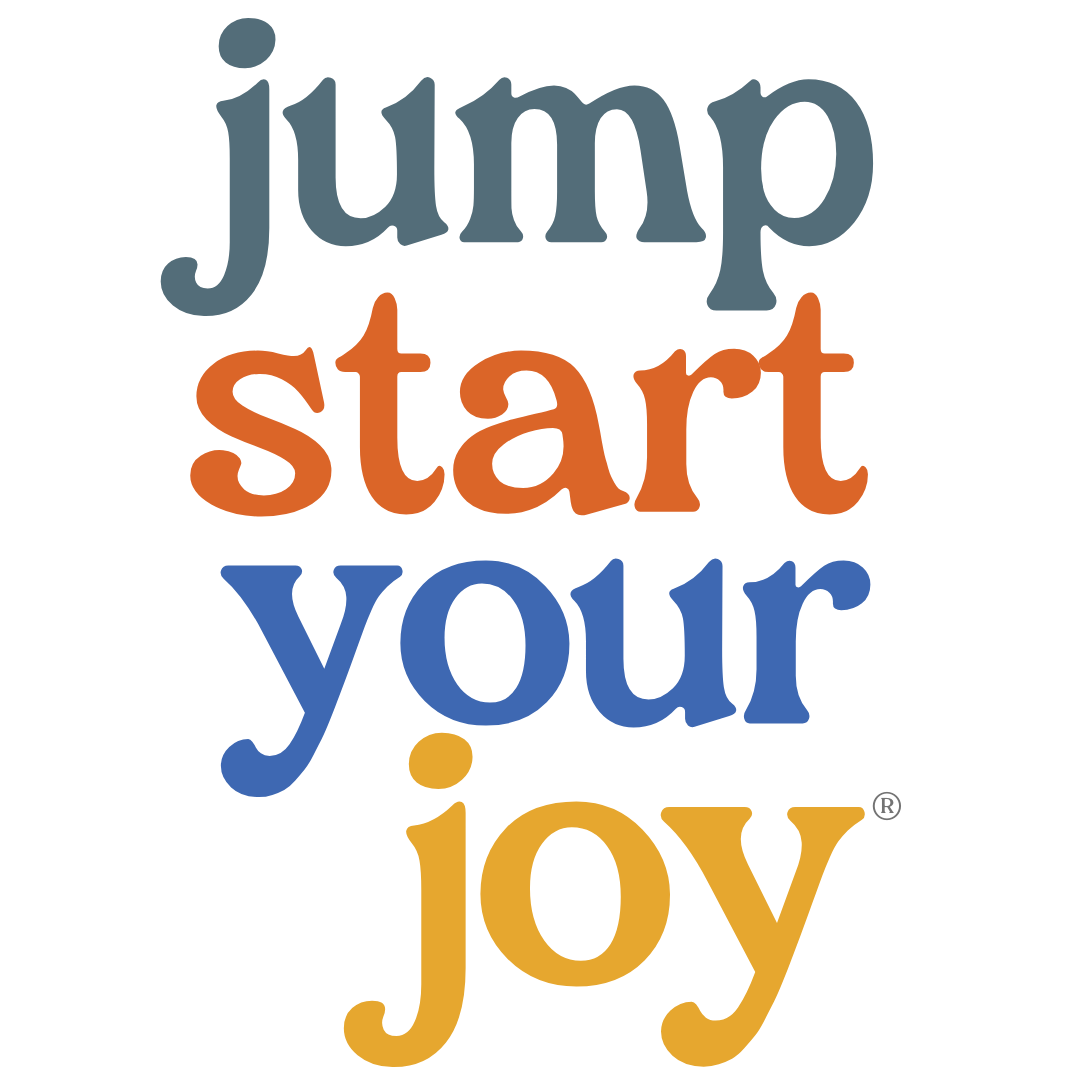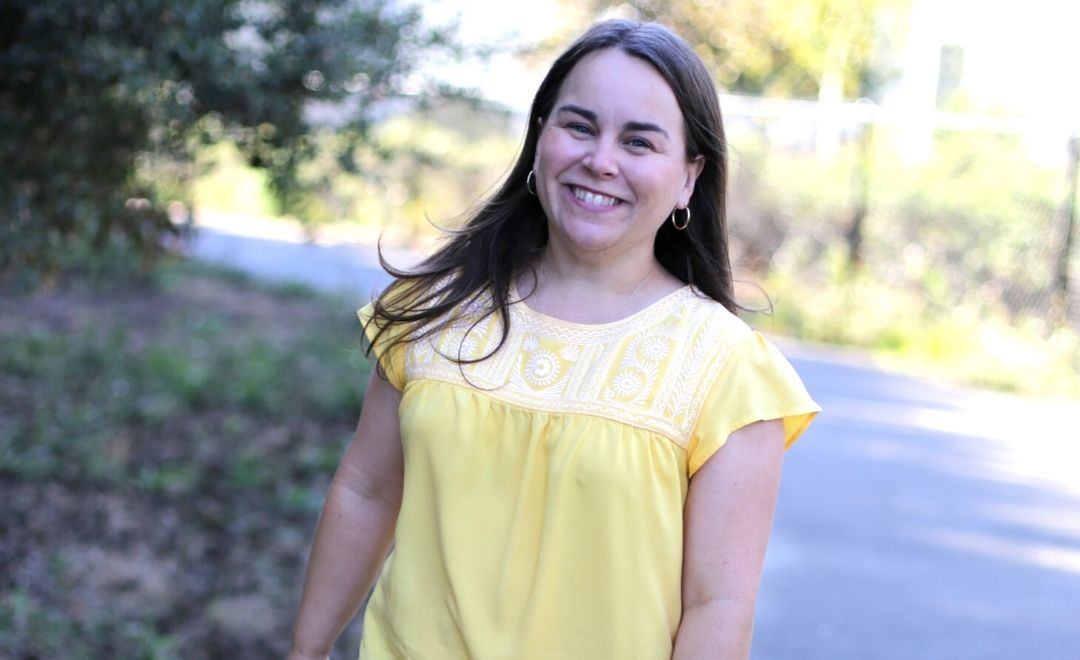Welcome to Jump Start Your Joy and the first episode of Season eight. I know it’s been a little while and I’m really excited to be back here with all of you. There have been so many changes and lots of time for reflection, one of the questions I’m grappling with is “What do you stand FOR?” In this post, I’ll dive into all of it with you and talk about where we’re headed next.
It’s been about a year and a half since I’ve taken to the microphone, and that is a very long break. Given that I started the show back in 2015 and had never taken a break of any duration in the first 350 episodes, it really was a long break and a good one. This break embodies a lot of what I’m going to talk about now as this show moves forward.
In this episode, we’re going to talk about being intentional with your time, being intentional with the people and causes you associate with, and really giving yourself the time and space to think about what it is that you need, what brings you back to center. How do you get back to that place when things feel difficult or hard or overwhelming?
I’ve never taken a break from the show before, so it feels strange, awkward, and even a bit funny to sit down and record an episode again. Back in January of 2023, my dad passed away after being fairly sick, and after that happened, I realized that there was no way I could juggle everything. Being someone that has a professional career as a podcast producer for another show, a mom, a wife, and supporting my own mom, all of those things were important and needed to keep moving forward. So, I intentionally decided to take a break after Season seven wrapped and the last episode went up in December. It wasn’t something I talked about, but it was a break that was very intentional and hard to do because I had never done that in any way since 2015.
Hustle Culture and Your Worth

Hustle culture weighed heavily into why I wouldn’t have taken a break earlier, as did my identity as a podcast producer and podcaster. I love the show, and I’m excited to be back, but thinking about hustle culture and how identity ties to our work made me reflect on the idea that “if you’re not growing, you’re dying.”
This can be a dangerous quote because it raises the question, what is growth?
Hustle culture often tells us growth means playing big, accumulating numbers, followers, sponsorships, and likes. Sure, that’s a form of growth, but when I think about growth, at least in the last 18 months, it has been about internal growth and leaving myself time to think and be. It’s about questioning the hustle culture messaging that tells us we have to keep moving and growing to be worthy or important. To me, growth has been about an internal journey and giving myself space to be quiet and see what happens.
As always, it’s time to be intentional
I also think a lot about being intentional with connections, the people and causes we associate with. My friend, Father Rusty, once said grief will throw you for a loop. He’s since left his post to take care of his brother and sister, honoring that we need to be intentional with our time. We only have so much time here, and it’s brave and courageous to recognize when you need to step away to focus on something else.
Most people don’t understand the depth that grief can have unless they’ve lost someone very close. It’s difficult to put into words. Living and processing grief means doing your best every day, even if some days are messy. It’s important to acknowledge that while there are many important causes, you can only give from your overflow. Grief takes a lot of time and energy and leaves you with very little overflow. Recognizing what you can and can’t give is crucial.
The Spoon Theory is helpful here. It’s usually associated with chronic illness, explaining that each difficult task is like taking a spoon away from a set number you have each day. Some days you have extra spoons because you’ve rested; other days you have none left, and you need to rest. This theory applies to recognizing how much you can give in any given situation. It’s vital to communicate your capacity to people and to understand it’s okay to set boundaries.
Boundaries are a form of self-kindness
Setting boundaries is about self-kindness. When you’re stating a boundary, be concise, kind, and clear. Boundaries are not an invitation to be a jerk. They are about communicating your limitations kindly. Sometimes people won’t respect your boundaries, and that’s more about them and their perfectionism than it is about you.
Remember, we’re each dealing with things others might not understand. We need to be gracious to others, understanding they might have unseen struggles. At my son’s school, the flag ban issue showed how people take sides, but we need space for discussion and middle ground. Society is more interested in what we stand against rather than what we stand for. This needs to shift for more positive interactions.
In high-conflict situations, people become steeped in the conflict itself. We must find ways out by valuing discussion and understanding what we stand for rather than what we stand against. This shift in focus can help create more positive dialogues and interactions.
How can we be joyful people in a world that is increasingly chaotic?
This deep reflection over the last 18 months has brought me to several realizations. What do I need? How can I be a person working in this world with all these influences while feeling centered, happy, and joyful? Byron Katie’s work reminds us there are three kinds of business: our own, other people’s, and the universe’s. We can only control our own business.
Focus on what you can control, and don’t get too involved in other people’s business or the universe’s business. This clarity can help reduce unnecessary conflicts and focus on what truly matters to you.
We need to choose joy and calm, focus on our needs, and honor them. We should not let external factors drive us. What you value and need to stay joyful comes from an internal journey, not external influences. This might mean participating in initiatives that resonate with your values, like the Buy Nothing philosophy. It helps strip away capitalist mentalities and focus on gratitude and joy.
In the end, it’s about circling back to what matters and what brings us joy. This takes intention and focus, especially amidst external distractions. Whether through meditation, guided meditations, or labyrinth work, find what helps you reflect inward. Labyrinths are wonderful metaphors for our life journey, helping us navigate our path with intentional reflection.
As I return to Jump Start Your Joy, I want to continue focusing on finding joy in challenging times and difficult situations. It’s about standing for what we want to create and bring into the world, rather than focusing on what we’re against. Let’s build a community around positivity and intentional living.
Resources in this episode:
Loving What Is: Four Questions That Can Change Your Life by Byron Katie
High Conflict: Why We Get Trapped and How We Get Out by Amanda Ripley



